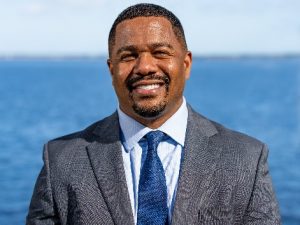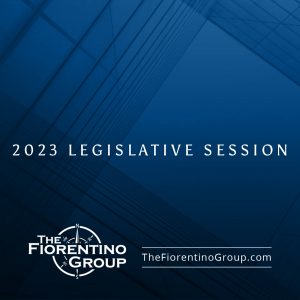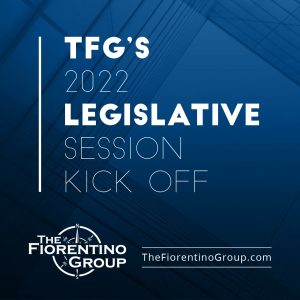
2021 Legislative Session Wrap-Up
Florida lawmakers wrapped up the 2021 legislative session on Friday afternoon, after a whirlwind final week of last-minute budget negotiations and amendments to key policy proposals. Following the historic events of 2020 and a tumultuous end to last year’s session, this year’s process went surprisingly well, with the success of numerous leadership priorities and the passage of a record $101.5 billion state budget for the coming year.
Several key policy proposals were approved over the past several weeks, including COVID liability protection legislation, as well as a measure to combat violent protests – a priority of Governor DeSantis. However, some of the biggest activity took place during the final days of the process. The late-session flurry of activity involved passing bills poised for final consideration and tacking substantive amendments onto moving legislation in order to ensure the success of legislative priorities. The bills passed as session was winding down included a repeal of the state’s no-fault auto insurance requirement, as well as two issues that were thought to be “dead” – a measure relating to the cruise industry in the Keys, as well as a controversial proposal to ban transgender athletes. Both issues were resurrected and approved by lawmakers last week and will now be sent to the Governor for consideration.
The success of this year’s session was due in large part to the infusion of around $10 billion in federal relief funds to the state through the most recent federal stimulus plan, as well as state revenues consistently coming in higher than projected throughout the past year. In addition, the working relationships between the Governor, Senate President and House Speaker remained fairly harmonious. All had big priorities for session, and all achieved big wins on their priority issues.
Despite Friday’s adjournment, lawmakers have not yet completed their work for session. With Governor DeSantis signing a landmark new gaming compact with the Seminole Tribe of Florida – setting the state up to potentially receive around $2.5 billion in revenues – House and Senate members will now return to Tallahassee on May 17th for a special legislative session to approve the new deal.
Leadership
Throughout the difficulty of the past year, Governor Ron DeSantis has proven himself to be one of the strongest leaders in state history. The Governor has worked tirelessly since his election in 2018, and his approval rating has reflected his dedication to the wellbeing of Florida and its residents.
Last year, in an effort to shore up state finances and prepare for the potential fallout of the pandemic, the Governor vetoed a record $1 billion from the budget passed by lawmakers during the 2020 session. This year, the Governor presented a robust proposal totaling a surprising $96.6 billion – $5 billion more than his recommendations last year – with a focus on reinvesting in the state to ensure continued growth following COVID.
Ultimately, the 2021 session was an overwhelming success for the Governor. On the policy side, he saw big wins on nearly all of his highest priorities, including a bill cracking down on social media and tech giants, legislation to combat violent protests, an overhaul of state voting procedures, and a ban on “vaccine passports” in Florida. In addition, the Governor saw success on his spending priorities, including education and environmental programs, and bonuses for the state’s first responders – something the Governor fought hard for throughout budget negotiations.
Both Senate President Wilton Simpson (R-Trilby) and House Speaker Chris Sprowls (R-Palm Harbor) also saw success this year. President Simpson saw the approval of several of his priorities, including expanding school choice and making substantive changes to state election policies – both of which were passed last week – as well as a “Right to Farm” bill, which has already been signed into law by Governor DeSantis.
On the House side, Speaker Sprowls championed a move to extend Medicaid coverage for Florida’s postpartum mothers from two months to one year, as well as the creation of a program to deliver books to Florida’s struggling K-12 readers. Both of these were funded in the state budget and were big wins for the Speaker.
State Budget
Even as revenue reports over the months leading up to session consistently surpassed expectations, at the beginning of session, the anticipated 2021-2022 budget shortfall totaled more than $2.7 billion. However, with increased revenues and the infusion of federal dollars into state coffers, the process was ultimately very different from early expectations.
→ Revenues, Stimulus and Negotiations
As lawmakers prepared for budget conference last month, reports showed a $2 billion total increase in state revenue collections over projections (around $1.4 billion for the current fiscal year and nearly $551 million for 2021-2022).
At the federal level, a record $1.9 trillion stimulus package was signed into law by President Biden in March. Under the plan, Florida receives around $10 billion in funds to fill different areas where the pandemic has caused revenue losses. The spending plan for the federal funds was negotiated by House and Senate leaders during budget conference.
Initial spending proposals totaled nearly $95 billion in the Senate and more than $97 billion in the House. Throughout the budget writing process, the House and Senate struggled to come to terms on allocations for health care and hospitals, with the House looking to make cuts in those areas of the budget. Members also had to agree on plans for utilizing the federal stimulus, as well as major allocations for programs like education and the environment.
→ Final Spending Plan
Lawmakers ultimately agreed on a record $101.5 billion state spending plan for Fiscal Year 2021-2022, which begins July 1st. This is the first time in Florida history that the state budget has surpassed $100 billion. Lawmakers ultimately decided to spend about $6 billion of the federal funds coming to the state, with the remaining dollars going into state reserves. While health care funding was a point of contention early on between the two chambers, the final budget product includes an increase in overall health care spending of nearly $5 billion.
The budget includes funds for bonuses for Florida’s teachers and principals, as well as around $50 million for teacher salary increases. The higher education budget was trimmed down in some areas, with the elimination of the Access to Better Learning and Education (ABLE) Program, a grant program utilized by Florida students attending private colleges and universities, as well as other cuts.
Environmental spending got a huge boost as a result of the stimulus, with around $1 billion going to various programs. This includes $300 million for a wildlife corridor, a $500 million Resilient Florida Trust Fund, and $50 million boosts to beach management and petroleum cleanup programs.
Speaker Sprowls secured wins on two of his biggest appropriations priorities, with $239 million for his push to extend Medicaid for Florida’s postpartum mothers, as well as $125 million for the New Worlds Reading Initiative, which sends books to Florida’s struggling K-12 readers. In addition, Florida’s first responders will each receive a $1,000 bonus – a priority of Governor DeSantis.
Budget writers also allocated $2 billion for state transportation projects and around $500 million for septic-to-sewer conversion efforts throughout the state. Now that lawmakers have passed the budget, the plan will be sent to Governor DeSantis for his review and consideration. The Governor has line-item veto power over the budget.
Special Legislative Session on Gaming
The issue of gaming has been the topic of extensive debate among state leaders over the past several years, but recent efforts to negotiate an updated compact with the Seminole Tribe of Florida have been unsuccessful. However, talks this year between the Governor and the Tribe have resulted in the development of a new 30-year deal. The proposed agreement includes numerous provisions, and allows the state to participate in online sports betting with the Tribe serving as the hub. The deal could potentially net the state around $2.5 billion over the first five years.
The new compact must now be approved by the legislature, followed by the U.S. Department of the Interior. There are some concerns about whether the Florida Constitution requires voter approval for sports betting to become legal, as well as concerns about the provisions potentially violating existing federal laws relating to tribes and gaming.
Lawmakers are set to reconvene in Tallahassee on May 17th for a special session to consider and vote on the new compact. This issue has been a priority for President Simpson.
Legislative Initiatives
→ Taxation
Lawmakers passed legislation this year to require out-of-state online retailers to collect sales taxes when Floridians make purchases online. This stands to net the state more than $1 billion in revenue.
In the final days of session, members agreed on a tax package totaling just over $196 million. The measure includes sales tax holidays for back-to-school and disaster preparedness shopping. In addition, lawmakers passed a “Freedom Week” sales tax holiday, beginning July 1st, which would provide sales tax exemptions on tickets for concerts, sporting events, museums and other cultural events.
Lawmakers also passed legislation that “decouples” the state from four federal tax cuts implemented during the Trump administration.
→ Legislation to Combat Violent Protests
Last month, Governor DeSantis signed one of his key priorities for session – an “anti-riot” measure to combat violent protests – into law. The bill enhances penalties for crimes committed during protests and puts measures in place to keep local governments from cutting police funds. The bill passed following hours of lengthy, contentious debate in both chambers. Since then, civil rights attorneys have filed a challenge to the measure in federal court in Orlando.
→ Social Media
The Governor also took aim this session at the practices of the nation’s social media giants – particularly the censorship of user activity and content with, many believe, the intent to impact U.S. elections. With the support of legislative leaders, the Governor pushed a proposal to enforce strict rules on the platforms. The bill that passed will prohibit the platforms from removing political candidates and implement fines if that rule is violated.
→ Data Privacy
Lawmakers in both chambers considered a controversial proposal this session regarding the private data of consumers collected by companies online. The contention surrounded language relating to the potential for lawsuits against businesses. Many saw this initiative, which was a component of the push to crack down on social media companies and other internet platforms, as something that would have unintended negative consequences on other businesses. Ultimately, with a large amount of opposition, this measure died without passage on the final day of session.
→ Elections
Lawmakers came to agreement in the final days of session on legislation to overhaul Florida’s election procedures – a priority of Governor DeSantis, and possibly the biggest issue of contention between Republicans and Democrats this session. While legislators ultimately backed off on some of the more controversial provisions of the bill, what ultimately passed is a measure to place more restrictions on voting by mail, particularly the use of “drop boxes” for voting.
Lawmakers also passed a measure to place a constitutional amendment on the 2022 ballot to abolish the state’s Constitution Revision Commission – a 37-member panel that meets every 20 years to craft amendments for voter consideration. The commission has been criticized in recent years over bundling numerous amendments together for placement on the 2018 ballot.
→ Education
With Governor DeSantis and legislative leaders all in support of school choice, lawmakers passed legislation this session to implement a significant expansion of the state’s school voucher program, which allows parents to send their children to private schools. The measure passed consolidates existing voucher programs, and increases the maximum financial eligibility for parents to qualify for the vouchers. With the changes, more than 60,000 new students will now qualify for the program.
One of the more controversial measures passed this session – which initially looked to be dead – is a bill to ban transgender athletes from playing girls’ and womens’ sports at the middle school, high school and collegiate levels.
On the higher education front, members passed a comprehensive package that includes COVID liability protections for Florida’s colleges and universities. The package also provides tuition waivers for certain students, and extends in-state tuition breaks to certain out-of-state students.
President Simpson’s goal of amending the state’s Bright Futures Scholarship program ultimately did not pass this session. While the legislation was watered down throughout the process, with the only provision remaining at the end of session being one that would tie scholarship amounts to funds available in the budget each year, the changes ultimately were not supported by the House.
→ Environment
One of the biggest issues addressed this session – both with regard to funding and policy – was “resiliency,” an expansive effort to protect the state against flooding and rising sea levels. This was a priority for both Governor DeSantis and Speaker Sprowls.
House and Senate members ultimately came to agreement on legislation that will dedicate up to $100 million per year on various projects and grant programs for local governments to combat flooding issues. The bill also requires the Florida Department of Environmental Protection (DEP) to create and update a state sea level resilience plan. In addition, lawmakers approved the creation of a Resilient Florida Trust Fund, which will be funded at $500 million.
Discussions did become contentious as lawmakers considered a measure to dedicate a significant portion of the state’s documentary stamp tax revenues to resiliency efforts and away from affordable housing programs. That legislation is on its way to the Governor for his action on the measure.
Lawmakers also approved “Right to Farm” legislation – a priority of President Simpson. The bill provides protection for Florida’s farming industry by making it more difficult to file nuisance claims against farmers, and has already been signed into law by Governor DeSantis.
→ Transportation and Seaports
In a late-session change of course last week, lawmakers resurrected seaports preemption language to rule any local referenda regulating ships docking at seaports invalid. This controversial effort is in direct response to a referendum passed in Key West banning cruise ships from coming into port there. The language was tacked on to a transportation package, which also includes various rules and regulations regarding highway travel and regional transportation authorities.
Lawmakers also supported a separate transportation bill that repeals Florida’s Multi-Use Corridors of Regional Economic Significance (M-CORES) – a measure championed two years ago by former Senate President Bill Galvano (R-Bradenton) to create a comprehensive rural transportation program in Florida. The legislation passed by lawmakers ultimately scraps most of the projects outlined in the M-CORES program, while stipulating that lawmakers develop plans for the remainder of the projects.
Going Forward
In addition to special session, the state legislative process will continue in the coming weeks as measures approved by lawmakers this year are finalized and prepared for delivery to the Governor. Ultimately, out of thousands of bills filed, 275 bills passed successfully through the session process this year. At this time, eight bills have been signed into law by Governor DeSantis. None have been vetoed thus far. The majority of the successful bills are still being finalized. These include the 2021-2022 state budget and budget implementing bill.
Once the Governor receives a bill, he has a total of 15 days to either sign it into law, veto it, or let it become law without his action. The budget is the only piece of legislation over which the Governor has line-item veto power. Our team is working continuously with state policy and budget leaders on policy and appropriations issues approved during session.
Once all 2021 session work has wrapped up, lawmakers will only get a quick break before reconvening in Tallahassee for committee meetings to prepare for next year’s session, which is set to start in January, as 2022 is an election year.
With regard to next year’s election, President Simpson has indicated that lawmakers’ work to redraw state congressional districts will likely take place this summer. While official census information has been delayed as a result of the pandemic and will not become available until August or later, members will begin their work before that time. Many expected Florida to receive two additional congressional seats, but at this time, it looks like the state is set to receive just one, which could potentially bring legal challenges. The process leading up to the 2022 election should be interesting and eventful for Florida and the nation.











